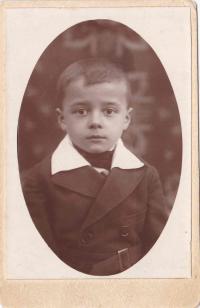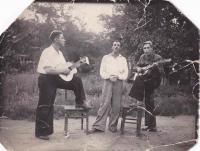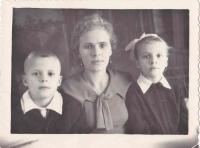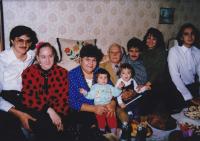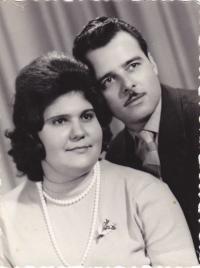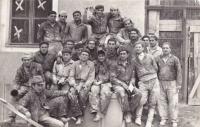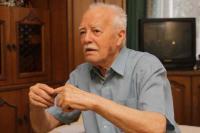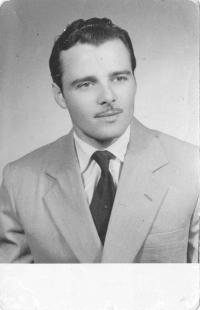"Let’s return to the crossing of the border, to this very occasion. You were travelling by train, you waited for the sign, and what happened then?
A: Everybody began to jump off.
Q: You, too?
A: Certainly. At least twenty of us.
Q: Did twenty people get off?
A: At least. They crowded the land like mantises. There were at least in twenty, of not more. I didn’t count them. The ticket inspector had come, checked our tickets and had said: „It was unnecessary to buy these tickets!” „Well – I replied – we were told by the other railwayman to buy them because control might come, or something like that.” „Control – he seemed suprised – who is controlled here, who controls here what?” And he added: „Just look at what will happen here!” When the train stopped, he told us: „Go now!!
Q: How did the train slow down?
A: It could go dead slow. It didn’t stopped. It went dead slow. I asked: „Didn’t this give you any problem? Doesn’t it cause you any trouble?” He was surprised: „Here? Who, what? We repeat this every day.”
Q: Was it so public, wellknown that one could cross the border in this way?
A: Certainly! Also these guys might have heard something about it in Sztálinváros and chose to come to this place. Otherwise almost everybody could cross the border, even if rarely somebody was caught… When we went down to drink, we spoke to a guy who had been caught the day before. He had said that he was brought here by car, four of them, but after it the soldiers turned back, two Russians. The Russians had gone and had brought them back. There wasn’t any control on the border those days! People crossed the border by cars. Big money could have been earned by this way.
Q: Let’s continue when you jumped off, what happened then?
A: Well, some trumbled, others didn’t. Everybody ran up and down and it was then that we crossed the border. There was a watercourse with some run-down pieces of a former bridge etc., you could cross there. It wasn’t a big watercourse, you could cross it easily.
Q: What distance did you walk?
A: Twenty minutes, half an hour, we hurried. There were families with children, with small children, husband, wife and a small child, it was a small child. Some people walked with baggages, but we didn’t have anything, I myself had an officers’ bag, a Soviet officers’ bag, a map bag.
Q: And did you meet somebody on the road?
A: Only those who came with us.
Q: Neither border soldiers?
A: Nobody, the border wasn’t guarded.
Q: But you’ve said that there were some Russians.
A: Russians? Yes, there were, but we didn’t meet them.
Q: And did this group which jumped off together continued to walk together?
A: They were with me.
Q: But I intended all those who jumped off together not only the four guys.
A: Of course, we went in the same direction.
Q: Did you go in one group?
A.: There were already some of us, because when we got off the train, the majority of the travellers had jumped off and they showed us where to go, I think because there were people who knew it. On the other side of the border there were both Austrians and Hungarians.
Q: These people were waited?
A: Obviously.
Q: And where did you go across the border, at a village?
A: No.
Q: Where did you arrive?
A: Outside a village, I didn’t even know the village on the other side of the border. The train couldn’t slow down in te village to let the people get down, Soviet troops or others were there.
Q: And what did you say how much time… You said you had walked how much, twenty minutes, about?
A: I don’t know, fifteen-twenty minutes, we didn’t waste time, a lot of people ran, those who hadn’t got big baggages ran. There were also young people, the majority of them was young. And the guys I led on were even young, seventeen-eighteen years old.
Q: How did you know that you were already on the side of the border?
A: There wasn’t border then.
Q: What do you mean?
A: Well, the barbed wire fence was dismantled everywhere where people had crossed the border, they did it, they stepped on it. The border might have been there. And there was the plowed up land etc. and every defence tools had been distructed by then. The people tore it down, those who had gone by before. People had crossed the border there for monthes. November, December, January, they crossed the border there all the winter, they walked across the border."

